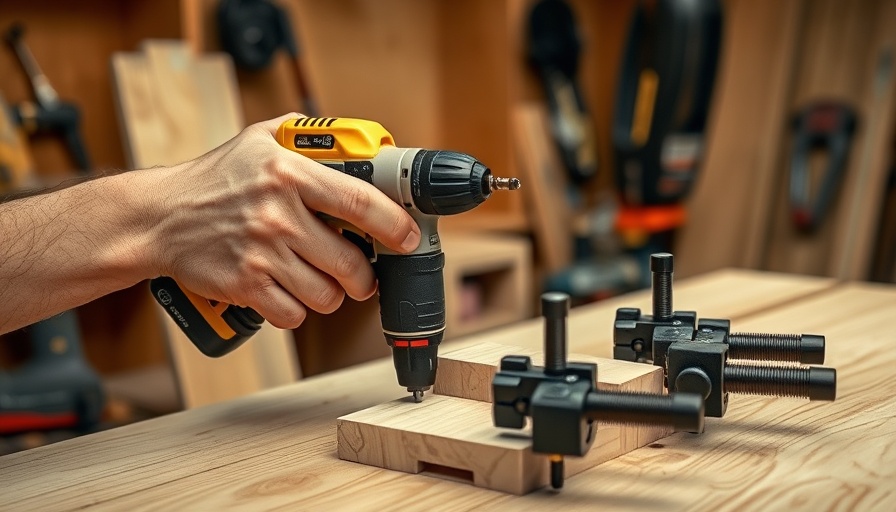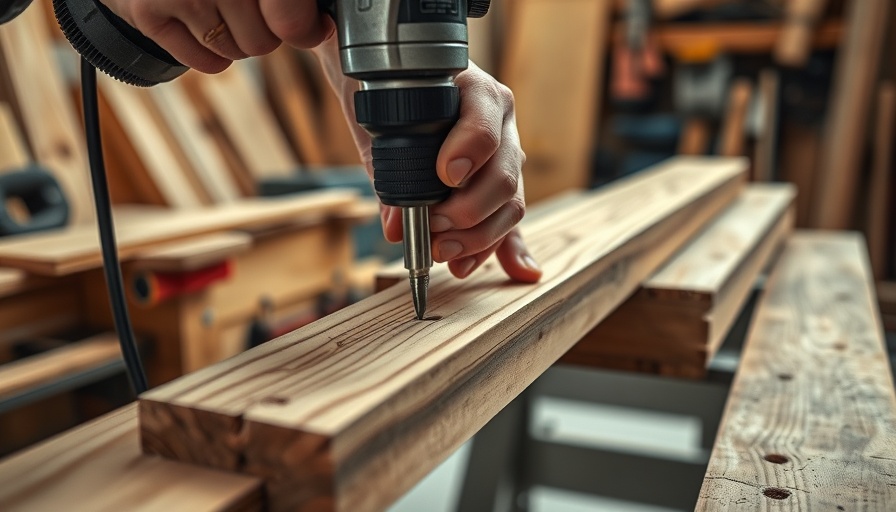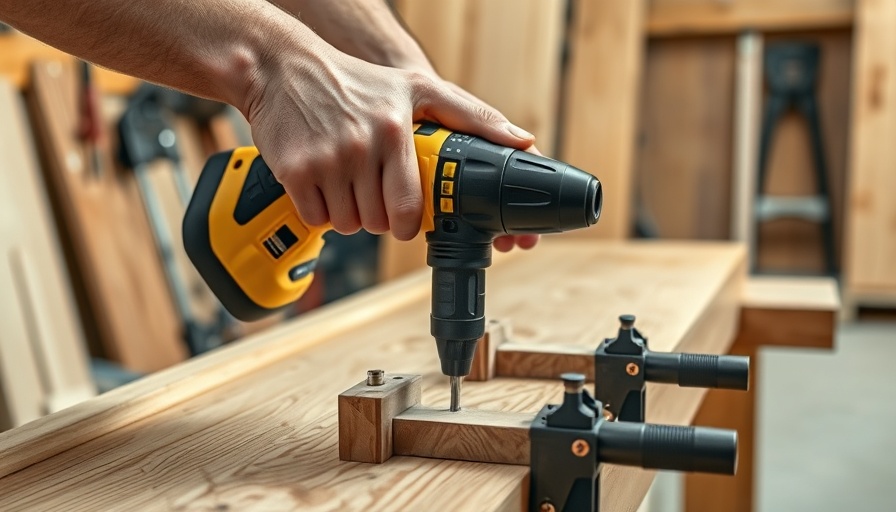
Home Projects That Can Lower Your Insurance Premiums
If rising home insurance rates have you feeling anxious, you're not alone. Insurance costs are climbing across the United States due to increased natural disasters, extreme weather, and upward trends in home values. However, as a vigilant homeowner in the MidSouth aiming to protect both your property and your peace of mind, you have the power to take proactive steps in managing your insurance costs.
Understanding the Importance of Home Maintenance
Regular home maintenance is crucial not just for comfort but also for your insurance rates. Neglecting maintenance can lead to property damage, which may result in higher insurance claims—ultimately leading to increased premiums. On the flip side, well-kept homes often benefit from lower insurance costs. According to experts Scott Holeman from the Insurance Information Institute and insurance agent Anne Beatty, investing in key improvements can yield serious savings.
1. Install a Reliable Security System
Boosting your home's security with systems like smoke detectors, dead-bolt locks, and security alarms can snag you discounts of at least 5%. Systems connected to central monitoring stations may even reduce premiums by 15-20%. While initial expenses could range from $1,500 to $2,500, the investment can pay off in reduced insurance costs-effective premium that eases your overall financial stress.
2. Upgrade Your Electrical Wiring
Old wiring systems come with significant risk, notably the potential for electrical fires. Upgrading to modern copper wiring or enhancing your electrical panel can lessen this fire risk and is often viewed positively by insurance companies. The cost ranges from $4 to $12 per square foot for rewiring, and $2,000 to $10,000 for panel upgrades—but consider this as not just a safety measure, but a cost-saving endeavor that could substantially cut your insurance premiums.
3. Revamp Your Plumbing Systems
Plumbing issues rank among the top causes of homeowner insurance claims due to water damage. Replacing outdated fixtures and old water heaters can mitigate the risks associated with leaks. Once again, this not only saves you potential headaches but also puts money back in your pocket in the form of reduced premiums. Costs for a new water heater hover around $2,000, making it a solid investment against future plumbing disasters.
4. Consider an HVAC Upgrade
Outdated heating, ventilation, and air conditioning (HVAC) systems can lead to fires and broken pipes, not to mention contribute to mold and health concerns—it’s a win-win when you update! Insurance reps recommend that HVAC systems be no older than a decade to avoid claims. Depending on the extent of your upgrades, costs could range from $6,000 to $13,000. However, energy efficiency and safety improvements are irrefutable benefits.
5. Keep Your Roof Well-Maintained
Roofs in severe disrepair can significantly increase your risk profile with insurers. A shaky roof not only raises your premiums but could potentially lead to outright denial of coverage. Regular inspections and maintenance reduce risks and demonstrate to insurers that you take care of your home. Simple tasks like removing moss or fixing small leaks can have large financial ramifications.
6. Invest in Impact-Resistant Roofing Materials
In areas prone to severe storms, the type of roofing material you choose can greatly affect your insurance costs. Upgrading to impact-resistant shingles can help minimize damage during storm season, often resulting in lower premiums. This cost might range depending on the material but investing could save you in insurance costs over time, especially for homeowners in storm-prone regions of the MidSouth.
7. Invest in Energy-Efficient Windows
Replacing old windows with energy-efficient models might help reduce not only energy costs but insurance costs as well. Insurers tend to view homes that are well-insulated and equipped with energy-efficient windows as lower risk. While costs can vary widely, the payoff in your monthly bills and premiums can be significant, making it an important consideration for any homeowner.
8. Landscape Wisely to Minimize Wildfire Risks
In regions prone to wildfires, landscaping can be a key factor in determining your insurance rates. Hardscaping with gravel, rock, or concrete and maintaining space between flammable plants can lower your fire risk. Insurance companies may offer lower rates for properties that demonstrate fire safe landscaping. A small investment in your garden can lead to larger overall savings.
9. Install Smart Technology
Home automation and smart devices equipped with alerts for safety events can also lower your insurance premiums. Smart smoke detectors and water leak sensors not only create a safer space but also provide insurance savings. Assess whether the cost of installing smart devices is manageable within your budget and measure how it might affect potential savings on insurance premiums.
10. Obtain Regular Home Inspections
Finally, don’t overlook the value of regular home inspections. Having a professional evaluate your home can address potential issues before they escalate. Insurers often look favorably on homes that have proven maintenance history—leading to lower premiums.
11. Consider Bundling Your Insurance Policies
Lastly, as a homeowner, consider bundling your home insurance with other policies such as auto insurance. Many insurance companies offer discounts for bundled coverage plans. By shopping around and comparing various offerings, you stand a better chance of finding the most affordable coverage that fits your needs—ensuring savings across the board.
Conclusion: Smart Moves for Lower Insurance Costs
Understanding how your home can impact your insurance rates arms you with the knowledge to lower those premiums effectively. By taking proactive steps in home maintenance and investing in key upgrades, not only do you enhance your living environment, but you can also protect your wallet. The projects listed here can inspire your next home care decisions and help you cultivate not just a beautiful home but also a financially sustainable one.
Are you ready to take action? Start your journey towards lower insurance premiums by planning out your next project today! A safer and more efficient home is just around the corner.
 Add Row
Add Row  Add
Add 



 Add Row
Add Row  Add
Add 
Write A Comment